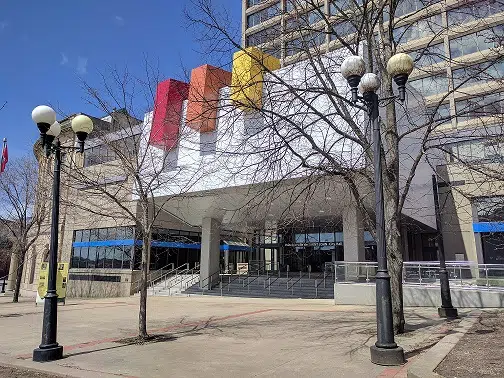The COVID-19 pandemic could have major impacts on the already cash-strapped city of Saint John.
Preliminary numbers presented to council Monday show the city is at risk of losing $1 million to $1.4 million in revenue per month.
Kevin Fudge, the city’s finance commissioner, listed several “high-risk” areas, including hotel room levies and parking-related revenue.
“We are not immune. Unlike provincial and federal governments, municipalities do not have the flexibility to run deficits and issue debt to run city operations. We must, by law, balance the budget and city budgets are predominantly funded by the taxpayer,” said Fudge.
Below is a breakdown of the revenue which is considered high-risk:
- Hotel levy: $120,000 per month
- Saint John Transit: $360,000 per month
- Recreation: $75,000 per month
- Parking: $240,000 per month
- Permits and licenses: $80,000 per month
- City Market: $60,000 per month
- Regional facilities deficit: $50,000 per month (after closure and layoffs)
- Saint John Water: $180,000 to $360,000 per month (10 to 20 per cent of metered consumption); $25,000 to $50,000 per month (lost interest from flat rate deferrals)
- Interest income: $20,000 per month (lower interest rate/cash balance)
- Parking commission: $70,000 per month (loss in off-street parking/Peel Plaza parking)
Fudge said the good news is about 91 per cent of their revenue comes from property taxes or provincial grants.
But the remaining nine per cent – about $14.4 million – is own-source revenue, which he said could be impacted by the pandemic.
“We are not in any way suggesting that the city will run a monthly deficit between $1 million and $1.4 million,” said Fudge.
The finance commissioner said city staff are already taking steps to mitigate the impacts of the pandemic.
“The city manager has imposed a hiring freeze and direction that no overtime shall be authorized without his express approval. The City of Saint John has laid off its casual workforce and, for now, put a stop to hiring any summer students for this year,” said Fudge.
Other mitigation measures include the closure of regional facilities, a reduction in fuel and energy costs, and a halt of discretionary spending.
Mayor Don Darling said this shows we are not immune to the impacts of the global pandemic.
“Certainly it would be my view that, like never before, we’re gonna have to come together as communities, the whole region, to come out of this and thrive,” he said.
Finance committee members will get a more detailed look at the numbers during a meeting next week.




